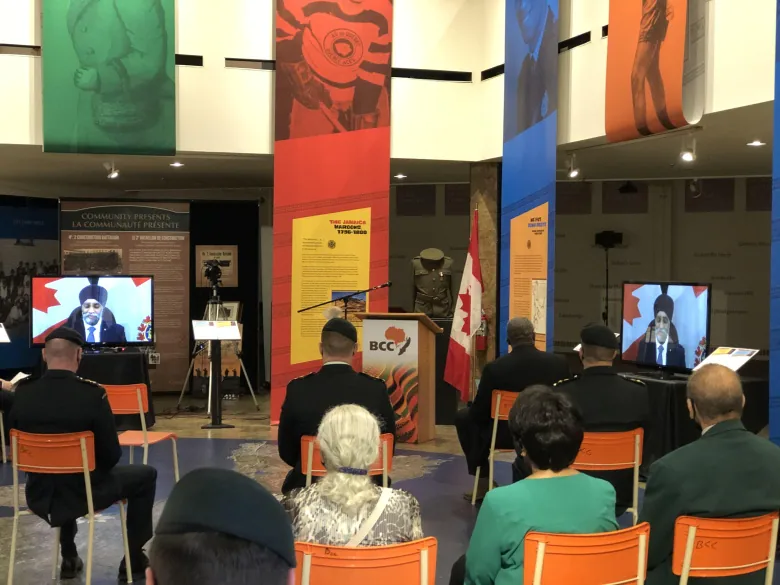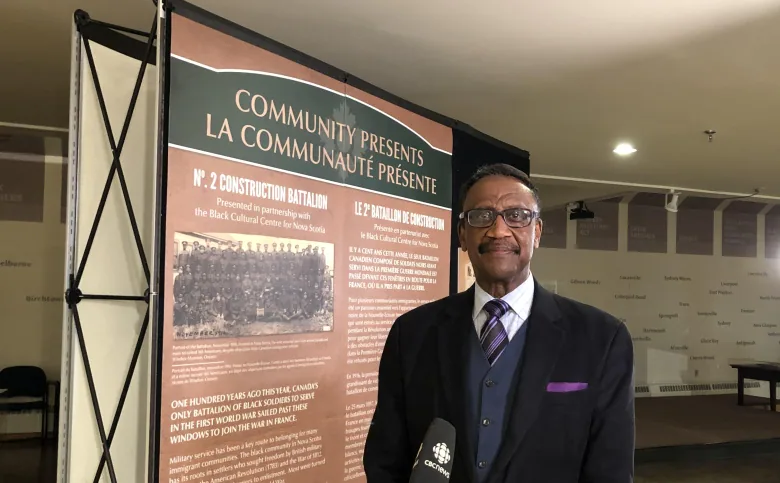The Canadian government plans to formally apologize to members of the No. 2 Construction Battalion — the country’s first and only segregated military unit — for the treatment they endured during and following their service in the First World War.
Many Black men were rejected from enlisting during the First World War because of their skin colour, so Canada allowed them to form the No. 2 Construction Battalion in 1916. Nearly half of the battalion’s 600 members came from Nova Scotia.
The announcement of the intent to apologize in a “meaningful and respectful way” happened at a virtual event on Sunday afternoon in collaboration with the Black Cultural Centre for Nova Scotia in Cherry Brook, N.S..
“Our country is still struggling with the insidious effects of racism,” Defence Minister Harjit Sajjan said in his virtual address. “More than 100 years later, we can combat it by recognizing the failures of our past and working to correct them.”
WATCH | Daughter of battalion member hopes Ottawa commits to making real change:
The federal government says it’s planning an apology to the No. 2 Construction Battalion, an all-Black battalion that served in the First World War. A woman whose father served in the battalion says while the announcement is emotional, she hopes the government commits to making real change. 9:24
Sajjan took time in his address to recognize the late Capt. George Borden, who spent years promoting the history of Black Canadians in the military. Borden died last year.
“His leadership in Nova Scotia’s Black community was inspiring. We remember and honour his contributions to our country, and we will uphold his legacy and ensure these stories are told and heard,” Sajjan said.

Douglas Ruck, co-chair of the Black Battalion Historical Marker Society, was one of the speakers at the event.
“I’m very pleased to be here but it’s sad because of those who could not be here. Family members of the battalion, my father [former senator Calvin Ruck], Capt. George [Borden], they’re no longer with us,” Ruck said.
“They should be sitting in these seats, they should be online listening to this, they should be part of it. And because of that, we must take this, we must take the pride in it, and we must continue with this message.”
Ruck’s father is credited with bringing the battalion’s story to prominence when after writing The Black Battalion 1916-1920: Canada’s Best Kept Military Secret about the members’ struggles.

“Unfortunately, that title still applies in many ways today…. If it hadn’t been for that book my father wrote back in 1987, I say to you now, with pride, they would have been forgotten,” Ruck said.
Nova Scotia Premier Iain Rankin, who spoke virtually at the event, called the news of the apology “long overdue.”
The event was closed to the public due to gathering limits. Descendants of the people who served in the No. 2 Construction Battalion, as well as members of the Black Battalion Historical Maker Society and the Black Cultural Society, were invited to attend.
For more stories about the experiences of Black Canadians — from anti-Black racism to success stories within the Black community — check out Being Black in Canada, a CBC project Black Canadians can be proud of. You can read more stories here.






